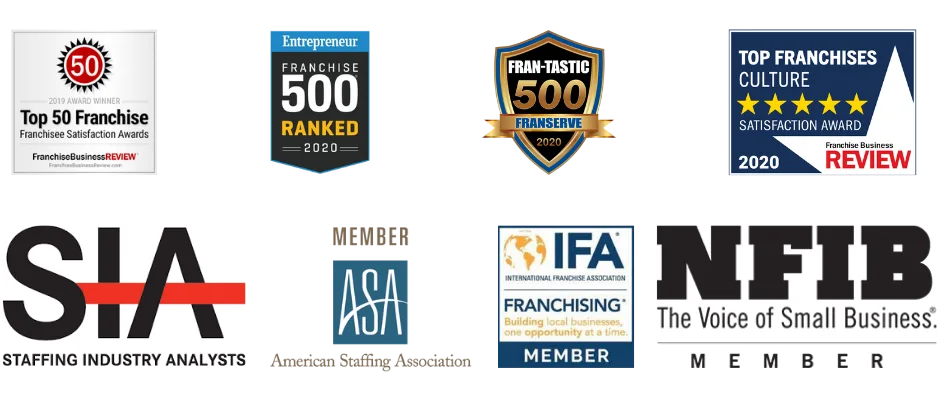Written By: Kat Boogaard, FlexJobs Contributing Writer
You check your inbox and your stomach immediately drops into your shoes. There it is—another job rejection email for a job that you knew you were a great fit for.
“What’s the deal?” you think to yourself as you begin to type out that mandatory polite and professional reply. You feel like you’re doing everything right—so, why are you on the receiving end of so many of those awful “thanks, but no thanks” messages?
Job rejection can be brutal, and it’s easy to instantly point those fingers at those no-good employers who obviously can’t recognize an excellent candidate when you’re right in front of their eyes.
However, after facing a series of letdowns, it’s smarter to turn the spotlight on yourself and see if there really are some areas that you could improve in your job search. What exactly should you take a magnifying glass to?
Here’s what to do when you keep getting job rejection email notices:
1. Review your resume.
The first thing you should do is to turn a discerning eye to your resume and ask yourself one key question: did you tailor it to that specific job description?
If your answer is “no” that’s one big thing you need to start doing differently in your job search. As tempting and convenient as it might be to blanket the whole world in one generic resume, that won’t help you get your foot in the door.
For the next positions you apply to, comb through the job description to pull out keywords, core responsibilities, and elements of that company’s culture. That way you can weave those into your own resume and cover letter—and, thus, make a far better impression on the hiring manager.
Did you tailor your resume and still receive a heart-wrenching rejection? It’s still a wise idea to match up your resume against the job description once more. Is there anything else you could’ve done to make yourself stand out as a seamless fit for that role? If so, jot those notes down and keep them safe somewhere—they’ll help you as you continue through your search.
2. Look for typos.
Perhaps you’re confident that the content of your documents is perfectly polished. But, that doesn’t mean a pesky typo or error didn’t sneak in somewhere.
For that reason, take some time and carefully read through your resume and cover letter to ensure you haven’t been including a cringe-worthy mistake (there’s nothing worse than spelling “detail-oriented” as “detail-oreinted”) with your application.
It seems like a minor thing—and, in many cases, it is. However, it speaks volumes about your own care and consideration as a professional. In fact, 20% of hiring managers would toss out a resume after spotting a single error, and 28% said that two typos would surely be the end of you.
Needless to say, making sure that your document is mistake-free is crucial for getting to the next step in the process.
TIP: Review your resume and cover letter from bottom to top. Reading in this unnatural order forces your brain to focus on each individual sentence, making you that much more likely to catch and fix any errors that you previously let slide.
3. Assess your qualifications.
It’s time to be honest with yourself. Reflect on the last several jobs that you were rejected for. Were you qualified? Did you check off the majority of what those employers were searching for? Or, were all of those jobs a bit of a reach for your skills and level of experience?
There’s nothing wrong with challenging yourself and aiming to take the next step on that proverbial ladder. However, if you’ve been receiving rejection after rejection, it might be time to adjust your expectations just a little bit.
After all, if the majority of the jobs you’re applying for require at least 10 years of experience and you only have four, you could very well just be setting yourself up for failure.
4. Ask for feedback.
If you’re like most people, you’re tempted with one reaction when you receive that dreaded rejection email: delete it immediately, try your best to pretend the whole thing never happened, and then drown your sorrows in the beverage or ice cream of your choice.
That’s natural—rejection hurts. But, even so, a much smarter strategy is to swallow your pride, thank that hiring manager for the experience, and then ask if he or she could provide any feedback to help you improve moving forward.
This can be difficult and humbling. However, it can also be incredibly enlightening. Being able to get some valuable insights from the other side of the hiring process isn’t something you get to do all that often. And, when you do? It can open your eyes to certain things that you may have never considered before.
So, don’t hesitate to ask for constructive criticism following a job rejection. If nothing else, you’ll demonstrate that you’re a professional who’s interested in continuing to grow and develop.
Nobody enjoys rejection. But, when you’re job searching, it’s bound to happen. Rather than pointing the finger at the employers who continue turning you down, take some time to reflect on how you could be contributing to the situation. Doing so will empower you with the information you need to improve—and, ultimately, land a job!
For more advice on landing a job that is the best fit for you, visit our talent blog or contact us today!
Recommended For You:
- How to Stay Positive While Job Searching
- Coping Strategies For When You Get Rejected
- “Thank you for applying, but…” How to Cope with Being Turned Down for Your Dream Job
Who is NEXTAFF? We are locally owned and operated staffing offices devoted to our communities, clients, and candidates throughout the United States. For more job tips and ideas, contact us. We are always hiring, so if you or someone you know is looking for work, check out our job board below and apply today! We are able to service all your staffing agency needs with local staffing offices in Sacramento-CA, Sonoma County-CA, Des Moines-IA, Raleigh-NC, Shawnee-KS, Topeka-KS, Detroit-MI, Kansas City-MO, Gulf Coast-MS, Phoenix-AZ, Miami-FL, Harrisburg-PA, Jackson-TN, Beaverton-OR, Pittsburgh-PA, North Dallas-TX, and Denver-CO.
{{cta(‘d32846d5-587b-4c3e-b397-d4da97690e8a’)}}




